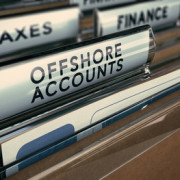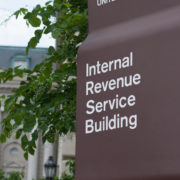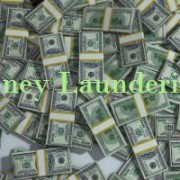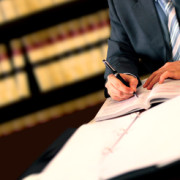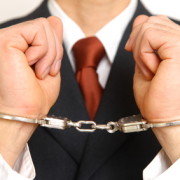Paying personal expenses out of a closely held business: civil and criminal tax implications
Reporting personal expenses as businesses expenses on a tax return
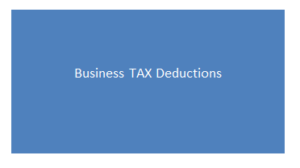 The justification for purchasing that $75,000 Mercedes, Rolex watch or other luxury item, paying for an expensive vacation, making monthly mortgage payments on one’s personal residence, and paying for home improvements then deducting these expenditures as ordinary and necessary business expenses is sometimes based upon a sense of entitlement. In other instances, a business owner who claims deductions for personal expenses may feel justified in financially ingratiating himself based upon a mistaken belief that the sole predicate for tax evasion is the under-reporting of gross income. Nevertheless, a misunderstanding of the tax rules pertaining to reporting of income and expenses in connection with the operation of a trade or a business or the IRS definition of “Income Tax Evasion” does not justify cheating the U.S. Government.
The justification for purchasing that $75,000 Mercedes, Rolex watch or other luxury item, paying for an expensive vacation, making monthly mortgage payments on one’s personal residence, and paying for home improvements then deducting these expenditures as ordinary and necessary business expenses is sometimes based upon a sense of entitlement. In other instances, a business owner who claims deductions for personal expenses may feel justified in financially ingratiating himself based upon a mistaken belief that the sole predicate for tax evasion is the under-reporting of gross income. Nevertheless, a misunderstanding of the tax rules pertaining to reporting of income and expenses in connection with the operation of a trade or a business or the IRS definition of “Income Tax Evasion” does not justify cheating the U.S. Government.
The IRS is well aware that business owners and those who are self-employed are in a unique position. Unlike a salaried employee who receives a W-2 or a retiree who is issued a Form 1099R in connection with a pension distribution, business owners have the ability to determine their income tax liability. The absence of third party reporting to the IRS makes this possible. Although the U.S. Tax System is a voluntary system, the IRS is aware that business owners routinely pay personal expenses from their business accounts and thereafter deduct those expenses as if they were associated with the operation of a trade or a business.
While a criminal tax prosecution of a business owner can include the failure to file returns or the under-reporting of income and the overstatement of business deductions, many business owners assume that tax evasion is only associated with income side of the ledger. Nothing could be further from the truth. I.R.C. Section 7201 defines income tax evasion, in pertinent part, as the willful attempt “in any manner to evade or defeat any tax imposed by this title or the payment thereof. . . .” Id.
In addition to tax evasion, business owners, who are caught cheating on their business and/or personal tax returns are oftentimes charged with other crimes such as Conspiracy to Defraud the United States, money laundering, filing a fraudulent tax return, or theft of government funds.
In an effort the promote compliance, the IRS provides qualifying business owners who have routinely deducted their personal expenses or otherwise cheated their returns with an opportunity to come clean. While there is no guarantee of non-prosecution, a business owner who makes a complete and honest disclosure is more likely to avoid jail time than if he waits for the IRS to discover his nefarious conduct. The IRS Voluntary Disclosure Practice is not suited for everyone. Each case must be carefully evaluated based upon the facts, the taxpayer’s history with the IRS and whether other non-tax laws have been violated. A taxpayer who has otherwise had a clean tax history may be looked upon more favorably than someone, who had prior problems with the IRS or was under criminal investigation for a non-tax crime (i.e. securities fraud).
Detection of fraudulent business deductions by IRS
The IRS detection of fraudulent business deductions can occur in a number of ways:
- The first and most obvious way is when a business or an individual is selected for examination by the IRS. Detection can also occur in cases where there are unpaid payroll taxes by a business and the IRS is conducting an investigation to determine whether to assess the Trust Fund Penalty against an individual considered to be a “responsible person.”
- Where a business is owned by multiple parties, the examination of one principal can potentially lead to the examination of other principals in the business. In other cases, a disgruntled employee, who was passed over for a promotion or a bitter ex may serve as the catalyst for an IRS examination of a business owner’s questionable business practices.
- On occasion, the IRS has been able to detect illegal deductions of personal expenses by a business through an outside tax preparer. In this case, an outside tax preparer involved in the preparation of the business owners’ business and personal income tax returns is identified by the IRS to be engaged in systematic and pervasive pattern of preparing false returns for business and individual taxpayers.
- Another way in which the IRS may discover illegal business deductions is through court filings, such as a bankruptcy, divorce, business litigation or post judgment liquidity determination.
- Nondeductible personal expenses are sometimes discovered as a result of a companion investigation related to mortgage or bank fraud. It is not uncommon to find that a business owner has submitted fabricated and unfiled personal and business income tax returns inflating the bottom line for his business as a basis for securing a business or personal loan, while at the same time, either failing to file or filing false returns with the IRS reflecting tax losses.
- Finally, social media, statements contained on a business website, the use of analytics by the IRS and cyber security breaches have provided the IRS with a treasure trove of evidence that business owners routinely deduct personal expenditures as business expenses.
Criminal cases
The landscape is littered with those who have tried to game the system and paid dearly. The recent criminal charges filed in Los Angeles against attorney, Michael Avenatti, illustrate the point. Avenatti’s meteoric rise in notoriety was due, in part, to his representation of porn star, Stormy Daniels, his 147 appearances on CNN and MSNBC as well as his announcement of a possible Presidential bid in 2020. Avenatti’s current legal problems originated, in part, from unpaid employment and personal taxes, submitting fabricated business and income tax returns in connection with bank financing and his lavish lifestyle. In fact, Avenatti failed to file personal and business income tax returns for multiple years. Specifically, Avenatti provided a false 2012 business return for his law firm, reflecting approximately $11.5m in gross revenues and net income of $5.8m (Id. at Page 184). In sharp contrast, the actual business return filed with the IRS for 2012 reflected approximately $6.2m in gross revenue and a $2.1m loss. The tax loss was generated, in part, by significant personal expenses that were deducted as ordinary and necessary business expenses on the law firm tax return.
During the past 25 years, I have been tasked by various clients who were a party to business, matrimonial and bankruptcy proceedings to review business and personal tax returns where fraud was suspected. I have also represented dozens of business owners who have been subject to IRS scrutiny with respect to the deduction of personal expenses as business expenses.
In this regard, my office has reviewed hundreds of business and personal income tax returns of litigants and clients who were self-employed. In many cases, I concluded that the business owner engaged in a rampant and systematic pattern of deducting expenditures for personal expenses as ordinary and necessary business expenses. I have also encountered this pervasive practice during the due diligence phase involving the valuation and sale of a business.
Personal expenses deducted as business expenses
Personal expenses that have been deducted as ordinary and necessary business expenses by business owners have included, but are not limited to:
- A business owner who was engaged in an oil and gas drilling business constructed a garage at his home at a cost of $350,000. The garage which included a two bedroom upstairs apartment, auto lifts and service bays, was used for servicing and storing the business owner’s collection of vintage automobiles and motorcycles. The proceeds to build the garage came from the corporate business account. The cost of the building was recorded on the books of the business, as if the business owned the garage. The business capitalized the cost of the building over the useful life of the building, reflecting depreciation expense on the business income tax returns. In addition all the costs associated with maintenance of the garage as well as the salary of a full time service mechanic were deducted by the business. Finally, the individual’s automobile and motorcycle collection and related costs were all carried on the corporate books and written off, despite the fact that these assets were titled in the owner’s name, individually.
- A beach front condominium was purchased for $1.2m by a prominent personal injury lawyer. He and his family used the condominium exclusively as a vacation home. The cost of the condominium was depreciated by the business. In addition, the business owner deducted all of the carrying cost including mortgage, taxes, insurance and HOA fees as ordinary and business expenses for his law practice.
- A South Florida Certified Public Accountant, who was engaged in the business of providing financial expert testimony during court proceedings, used the funds from his practice to finance a long term extramarital affair. The expenditures included regular trips to Las Vegas, and the Bahamas, the purchase of a $65,000 BMW for the business owner’s girlfriend, multiple shopping trips and the purchase of luxury personal items, as well as the expenses associated with the rental of a penthouse apartment on Brickell Avenue in Miami. All of these personal expenditures were deducted by the business as ordinary and necessary business expenses. Subsequently, the business owner’s wife discovered the affair and filed for divorce. Her divorce attorney retained my office to review the husband’s finances. As part of the divorce proceedings, the business owner was required to provide his business and personal tax returns as attachments to his financial affidavit as well as copies of his business and personal bank statements. These documents were relevant in the context of equitable distribution, alimony and child support.
- In the early nineties, a South Carolina Real Estate Developer and its principals were sued for bank fraud by a New Jersey lender in connection with a failed real estate project in Atlantic City. A judgment in excess of $18m was entered in favor of the bank. As part of its collection efforts, my office was retained to evaluate the potential for recovery against the developer and its principals. In this regard I reviewed the business and personal income tax returns as well as the business financial statements and bank records, which were submitted to the bank as part of the loan approval process. The returns submitted to the bank reflected robust earnings and substantial liquidity, including cash, trading accounts and work in process. Pursuant to a court order, my office secured the actual business returns submitted to the IRS. In sharp contrast to the information submitted to the lender, the business returns filed with the IRS reflected significant operating losses. The losses were created in part due to the inordinate number of personal expenses that were paid from and deducted by the business as ordinary and necessary business expenses. During my examination of the business returns, my office was able to determine that one of the principals had a son at Cornell Medical School and a daughter who was attending college in Lucerne, Switzerland. In addition, the son had full time use of a luxury company car. The tuition and all expenses were being funded by the corporate entity with the costs deducted on the corporate returns as continuing education, professional conferences and other professional fees. In addition, two of the other business principals, who happened to be brothers, paid all of their personal expenses out of the business and had full time use of luxury automobiles leased by the business. Perhaps the most outrageous expenditure involved cosmetic surgery for the brothers’ wives, which were deducted as “consultant’s fees” on the business return.
- A Brownsville, Texas couple, who jointly owned a lucrative internal medicine practice, routinely deducted annual business losses associated with a cattle breeding business operated from their home. The losses were generated in part based upon personal expenses that were paid from the cattle breeding business, and thereafter, deducted as ordinary and necessary business expenses on Schedule F of the taxpayers’ personal income tax returns. The initial IRS examination resulted in the disallowance of the losses associated with the cattle breeding business and the imposition of the 75% civil fraud penalty for a period of three years. However, the taxpayers’ problems did not end there. At the conclusion of the IRS examination a referral to criminal investigation was made. While the taxpayers were successful in avoiding criminal prosecution, the time spent aware from their medical practice and the costs associated with their choices resulted in their filing personal bankruptcy as well as a bankruptcy for their medical practice. Ultimately, the couple separated and divorced.
The above examples illustrate that business owners, who engage in the illegal practice of deducting personal expenses as a means of under-reporting their federal tax liability, paid the price for their actions. Deducting personal expenditures as business expenses, at least circumstantially, is probative evidence that a business owner willfully intended to cheat the government and can result in substantial civil and criminal penalties as well as the possible loss of freedom. Even in cases where a business owner reports all of his gross receipts on his business or personal return, claiming personal expenses as ordinary and necessary business deductions can result in more than merely the IRS disallowing the deductions.
Today, we are subject to heightened scrutiny due to social media, the legal and illegal exchange of financial information and cyber security threats. In addition, rarely if ever, do business owners engage in this unlawful practice without knowledge by a third party, such as a partner, employee, spouse or girlfriend, who may be able to corroborate the fraud.
In the past, business owners were able to enjoy the benefits of deducting personal expenses as business expenses in order to defeat the assessment and collection of income taxes. That is no longer the case. If you are concerned about your potential exposure, now is the time to consider coming forward. In some, but not all cases, there is a potential to right the ship by making a complete and honest disclosure. Depending upon your circumstances and particular facts of the case, utilizing the IRS Voluntary Disclosure Practice may be an alternative to jail time. While some taxpayers cite the low number of Department of Justice criminal tax prosecutions as justification for rolling the dice, any business owner who has been prosecuted and convicted for tax and other related crimes will tell you that it was not worth it. IRS tax prosecutions can result in financial ruin, loss of earnings, divorce, family break-up, bankruptcy and, in extreme cases, suicide.
In the 25 plus years I have been representing taxpayers, I have yet to find one that has since departed this earth who was able to take it with him. Ultimately, it is about the choices we make in life.
©April 5, 2019

